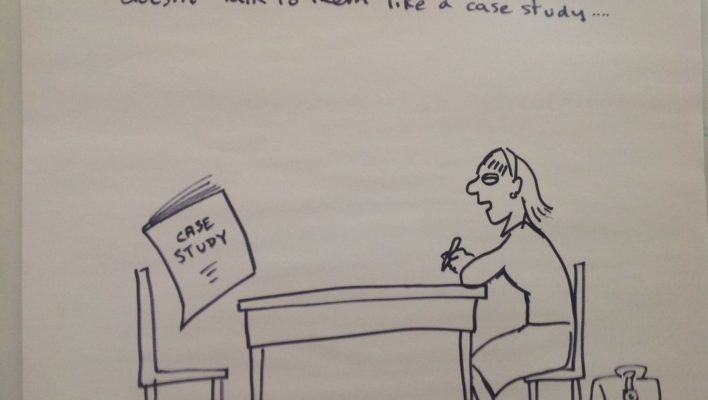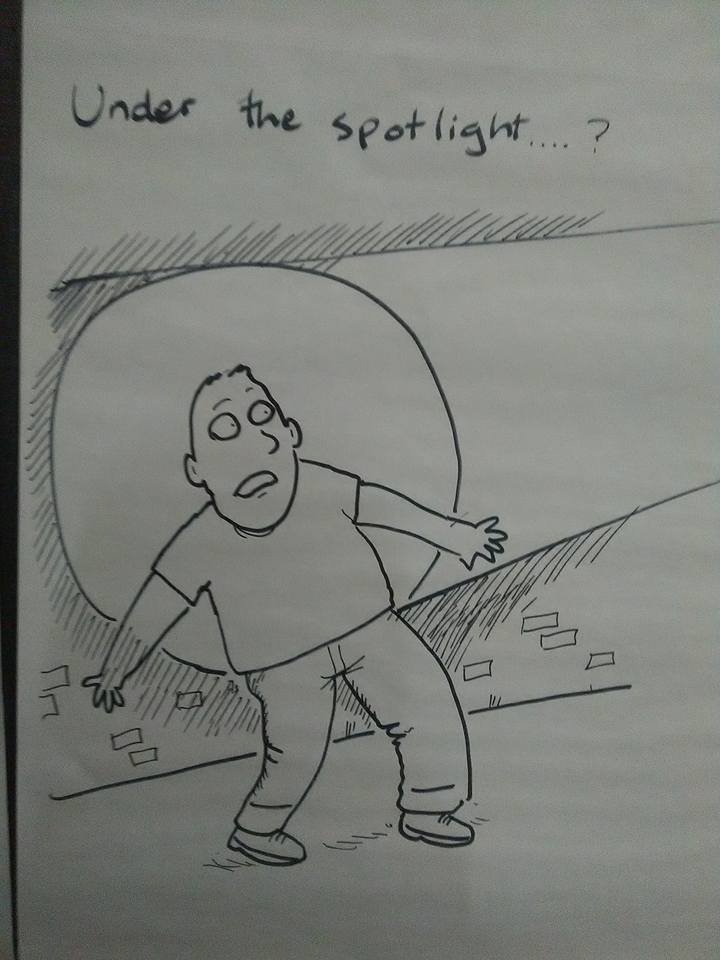I am a person not a case study

The following is a presentation given by Andrew, a father whose family have been the subject of social service interventions and child protection plans, at the Reinforcing or Reducing Inequality among Children? The Role of Child Protection Services conference at King’s College London on 28 February 2017. #cwipconf17
Andrew : The Roles of Child Protection Services
When I was asked to speak to you all today, I was told that other people would talk about facts and figures and statistics. I can tell you what these statistics mean in real life. I can tell you about my own experience. When social services are involved in your life, you are in the spotlight. It is like living under a microscope. You feel like you have to agree with everything the social workers say. If you don’t agree with them you know that you will lose your kid. It feels like having a gun to your head.
I’ve had bad experiences with social workers and good experiences. A good social worker will talk to you; it is about you and your family, not about your case file or statistics. I am fortunate to have had good social workers this time around; one, they have tried to see things from my point of view and see what life is like in my shoes and, two, they have gone back to their managers and fought my case for me.
My wife fell pregnant two years ago. We were told by our social worker and her manager that they wanted to make sure we were meeting our baby’s needs and that she was developing like a new born baby should.
When social services are involved in your life, you need them to be understanding. I know they are focusing on my daughter’s weight. But I didn’t go and get her weighed last week because I was sick and my wife was out at college. There was nobody take her. You need social workers who understand that and don’t jump down your throat when you have a good reason for not doing what you said you would.
In the past, with our older children, I feel like there was never a fixation on a baby’s weight like there is now. My daughter is now messing with her food and messing about at mealtimes. It puts pressure on me and my wife to feed her and to persevere. Despite all this, she is still within the centile but this pressure is new.
When she was born, we were sent to an assessment centre for three months. It was worse than being in prison. We were the eldest people there, surrounded by immature children having children.
But we agreed to go because we know that if social services have concerns, you have to work with them to get rid of them! If they want you to do something then you have to do it.
Going there also proved to the social worker that we were determined to keep our baby, even if it meant taking advice from staff who didn’t even have kids of their own. You have to show willing.
When we came out of the assessment centre, social services made me the main carer for our child. They asked me not to work or look for work. It doesn’t work that way when it comes to the JobcentrePlus; if you’re not allowed to look for work then you get no benefits.
Social services cannot have it both ways. I cannot be asked to be the main carer and only stay at home with the baby. I need to go out and work to earn money. Nothing in this world is free. You can’t feed a child on fresh air. And if you can’t provide for your child then social services will take your child away.
In the end, social services realised I needed to be able to work part-time to get benefits. My work advisor was a really good support for me. But the real difficulty is that not working means you have no money. And if you have no money then you can’t provide for your child.
I have more outgoings than income because being on benefits is no good. Everybody wants the best for their kids and themselves but that doesn’t mean just feeding them; it means keeping a roof over their head, clothing them. A life on benefits means I can’t go on holiday. It means having that not nice feeling in your stomach when your teenage son asks for a laptop or trainers at Christmas and you’re not sure you have enough money for the rent, the gas, the electricity and the food.
A child does not come with a bottomless pit of money so I need the freedom to go out and work. I still want a normal life for me and the kids.
Dignity means respect. Living on handouts, which is what being on benefits means to me, means no dignity.
In the end, I want to repeat what I said at the start. I’ve had bad experiences with social workers and good experiences. A good social worker will talk to you; it is about you and your family, not about your case file or statistics.
It is also important to have a good support network. I am lucky to have family, friends and ATD Fourth World. This made a difference because having them there meant I could fight to go back to work and know they would visit my wife to support her with our children.
You need to know what support my family has needed outside of social services: holidays with ATD, someone to come to court with us, someone to come to case conferences and meetings with social services, someone to visit us when we were in the family assessment unit, someone to support my wife her confidence and get her out of the house when she was having her panic attacks, someone to support our son through the loss of his brothers and take him out places so that when he feels he can’t talk to us he has someone to talk to.
Everyone needs support with kids. With kids, you go through good and bad but it feels like social services are only there for the bad. If social services really want to work with families then they cannot just walk away from a family the moment the child is adopted. If you want to work with families then it is the relationship that has to be the most important thing.
Thank you.
By Andrew ATD Fourth World
For more info about our Social Work Training Programme :
https://atd-uk.org/projects-campaigns/policy-participation-and-training/social-worker-training-programme/
Cartoon imagines from the conference by @harrymvenning


